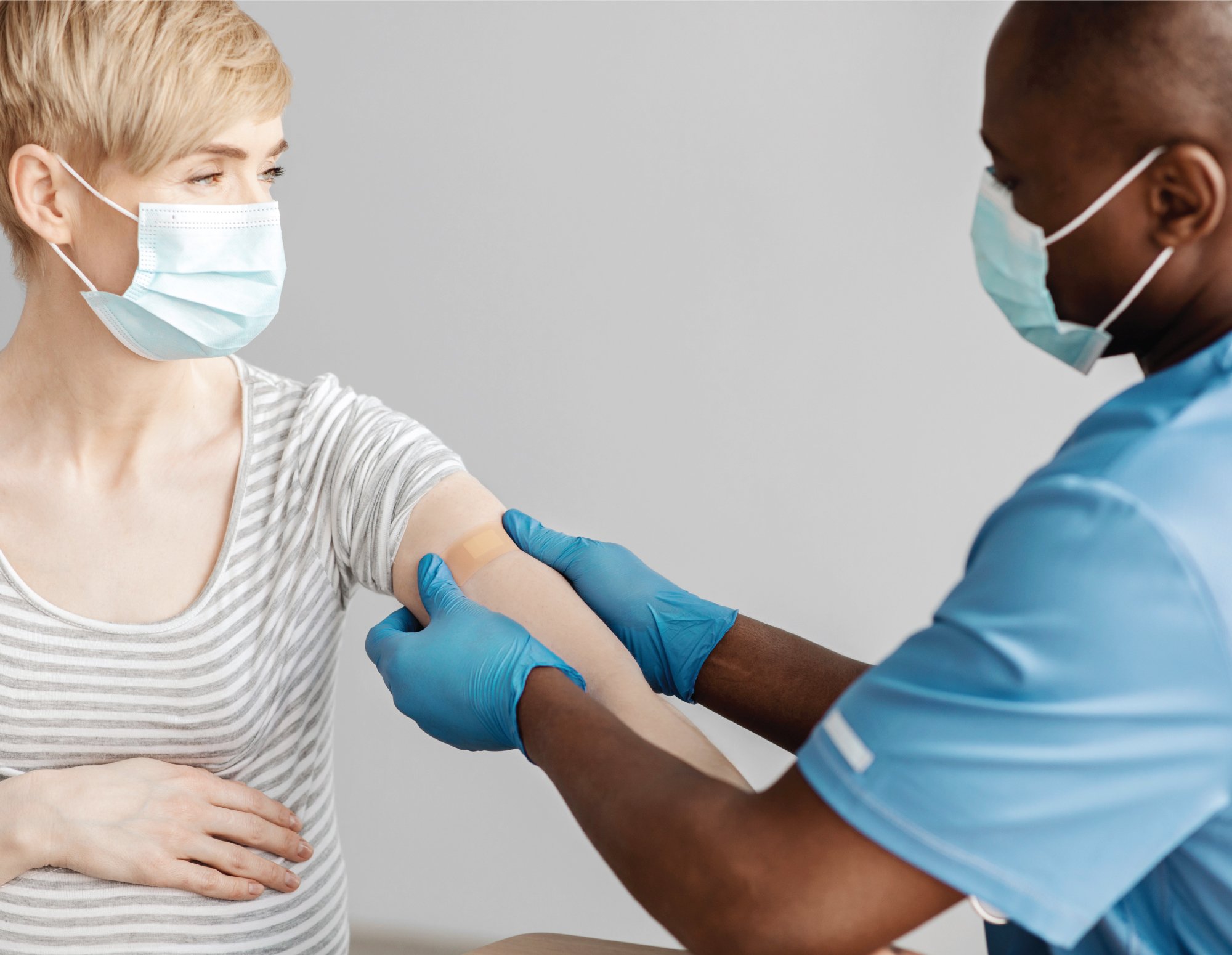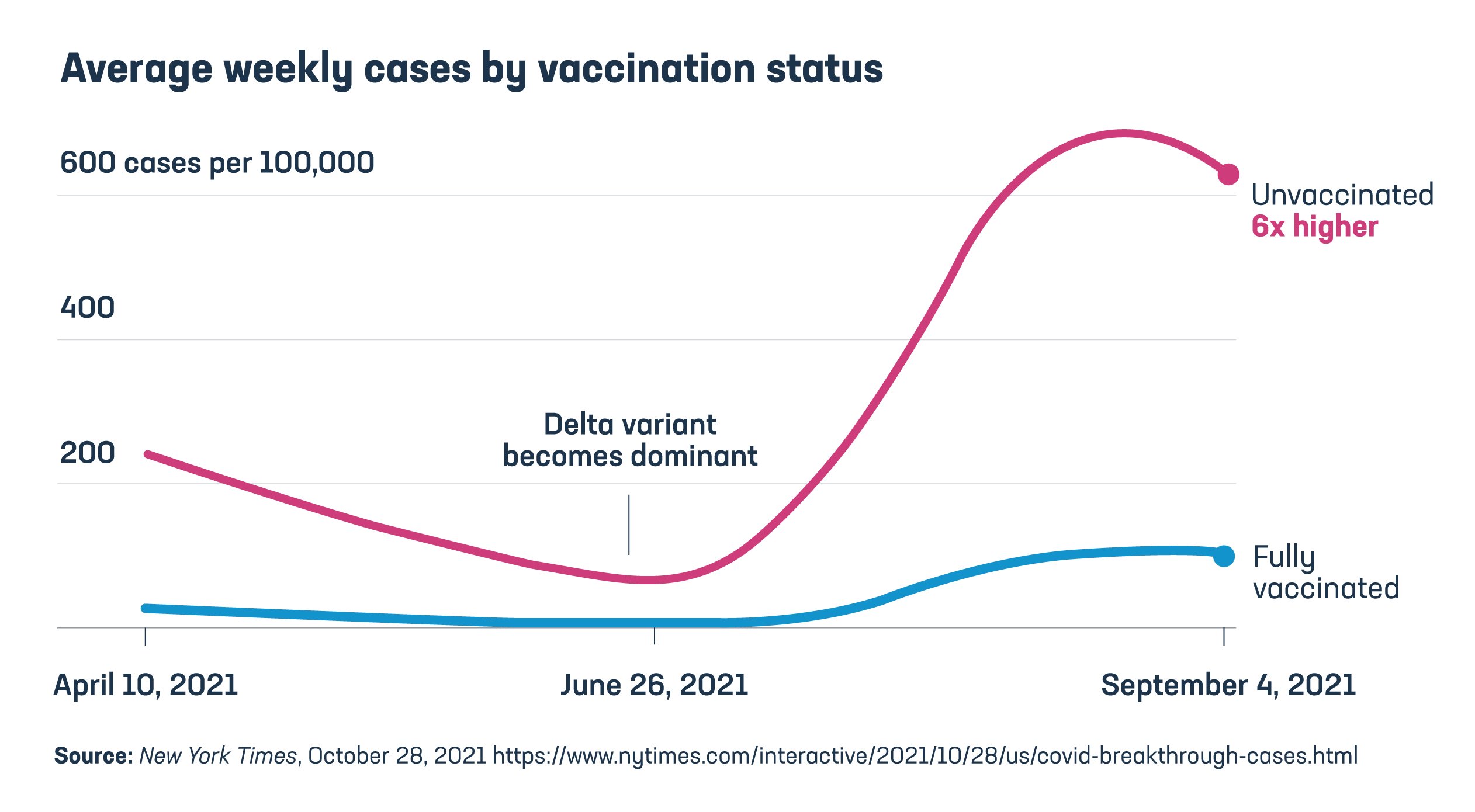Understanding breakthrough COVID-19 infections
Here are a few common questions about breakthrough COVID-19 infections.

Understanding breakthrough COVID-19 infections.
Here are a few common questions about breakthrough COVID-19 infections.

Understanding breakthrough COVID-19 infections.
The biopharmaceutical industry continues to work around the clock to research, develop and manufacture vaccines and therapeutics to prevent and treat COVID-19. Already, we’ve made unprecedented progress, and COVID-19 vaccines have protected hundreds of millions of people in the United States and billions around the globe.
Progress in a pandemic is not linear, unfortunately. Breakthrough infections, an infection with a virus after you have been vaccinated, are possible for some individuals even after vaccination. No vaccine – for COVID-19 or any other disease – is 100% effective in preventing infection in every person who receives it. Still, overwhelmingly, vaccines are preventing or mitigating infection, and continue to be our best tool in fighting COVID-19.
Here are a few common questions about breakthrough COVID-19 infections.
How likely am I to get a breakthrough COVID infection?

What is the chance I get hospitalized if I do get a breakthrough case?
If vaccines don’t prevent me from getting and/or spreading COVID-19, why do I need a vaccine?
The COVID-19 vaccines are safe, effective, and to date, more than 416 million doses of vaccines have been administered in the U.S. But we know our work isn’t done. Protect yourself and your community by getting vaccinated, receive a booster if eligible, and take appropriate precautions based on your personal risk and the level of transmission in your community. Learn more at PhRMA.org/Coronavirus.